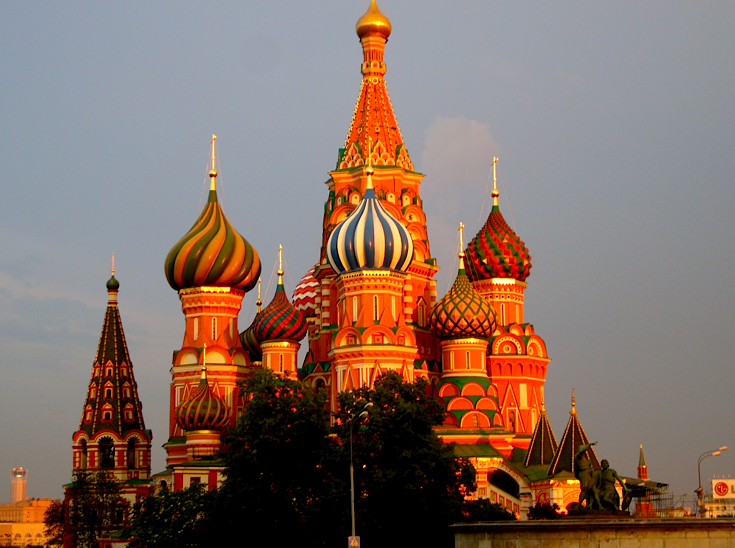Views expressed in opinion columns are the author’s own.
In March 1999, over the Atlantic, a diplomatic aircraft performed an unexpected u-turn. Innocuous at the time, the importance of this event has grown today. Its destination had been Washington and its cargo had been Russian Prime Minister Yevgeny Primakov. He was on his way to negotiate with Vice President Al Gore when he received notice that NATO coalition fighters had begun bombing Serb forces in Kosovo. Russia, a staunch supporter of Serbia’s control over the crumbling Yugoslav republics, strongly condemned NATO’s incursion into the ethnic conflict between Serbs and Kosovo Albanians. As a permanent member of the United Nations Security Council, the Russians would have vetoed any resolution that would interfere militarily in Serbia’s Kosovo ambitions. To circumvent Russian opposition on the UNSC, the United States intervened along with NATO allies.
If the Soviet Union’s dissolution less than eight years prior hadn’t already emasculated Russia, an American-led intervention in Yugoslavia surely finished the job. Russians viewed Serbia, one of the republics of collapsing Yugoslavia, as a familiar land of Eastern Orthodox Slavs. Yugoslavia in general, was considered a part of Russia’s sphere of influence. In this context, it’s not difficult to discern the reasons for Russia’s repudiation of western intervention in the conflict. After all, Kosovo, where the Serb forces were attacking, was a part of Serbia at the time. The West’s unilateral bombings cultivated the perfect climate for an up-and-coming politician named Vladimir Putin to channel resentment and stoke nationalism. Among his first presidential actions, Putin authorized the Second Chechen War in August 1999, regaining some of Russia’s former prestige. Putin’s intent was clear: reclaim Russia’s sphere of influence. This intention continues today as Putin alternates between the positions of prime minister and president, absent a parliamentary check on his authority.
After Russia’s economic boom in the 2000s, Putin continued nurturing public nostalgia for the Soviet Union by annexing portions of Georgia and Ukraine in 2008 and 2014 respectively. Today, there is certainly the possibility that Russia will once again exercise pressure in Serbia. Before Russian intervention in Syria, it may have seemed presumptuous to assume Russian forces could project power across the map, but their ability to do so seems tied to a country’s leadership willing to host them. Today, Yugoslavia is gone. In its place are a series of republics in the Balkans, one of which is Serbia. Here, observers can find Russian armament of Serb military forces already underway.
Late in 2016, Russia formally announced a plan to give six Mikoyan MiG-29 fighter jets and 30 T-72C tanks to Serbia in the hopes of countering NATO’s armament of Croatia, its neighbor to the west. Then, in January, Serbs sent a train to Kosovo adorned with Orthodox frescoes and the phrase “Kosovo is Serbia” written on the side. A few weeks later, accusations surfaced on the German news site Deutsche Welle, via an interview with Kosovar President Hashim Thaçi, suggesting Serbs were provoking another war in Kosovo by arming the Serb minority in the country. Thaçi asserts that the Serb strategy is to incite conflict in Kosovo by way of a Serb minority, a page taken out of Russia’s Ukrainian playbook.
Kosovo has remained autonomous from Serbia since the 1999 NATO intervention. In 2008, the country declared independence and has been formally recognized by the majority of NATO and European Union members, including the United States. Despite this, if Russia were to back Serbia’s conflict north of Kosovo, it would play well into Putin’s overall objectives. For one thing, more than 95 percent of Kosovo is Muslim. Despite the Muslim-majority nation unabashedly loving America, a conflict between a Christian Serb minority and a Muslim majority likely won’t reciprocate much sentiment from a U.S. presidential administration already at odds with the Muslim world. The effect this religious factor could have on a U.S. reaction can’t be underestimated, especially if that reaction delays NATO’s resolve to act absent the United States.
Additionally, if Russia were to promote conflict between Serbia and Kosovo, such a move would offer Russia an indispensable bargaining chip. While it’s nice to have influence over the Balkans, Russia could retain Serbia’s loyalty while simultaneously encouraging them to ease out of a conflict in Kosovo after it has already begun. By lighting a match in the Balkans and then stifling the flame, Putin could play the role of arbiter, while also distracting the West from his aggression in Eastern Europe. If the West needs to settle a destabilizing conflict in the Balkans, which contains NATO countries, it may be more likely to concede portions of Ukraine to Russia.
Most importantly, by setting off a powder-keg in the Balkans, either through an ethnic conflict with Kosovo or a military standoff between Serbia and Croatia, Russia will successfully exert influence where it failed to in the late ’90s. If the Trump administration remains averse to defending long-standing commitments with NATO and the Balkans, then it would give a clear indication to the Russian Federation the sphere of influence is once again in play.
Kyle Rempfer is a sophomore government & politics and Russian major. He can be reached at krempfer@terpmail.umd.edu.



